
Tabuk: The Oasis of History and Adventure
Nestled in the northwestern part of Saudi Arabia, Tabuk is a city rich in history and natural beauty. Known for its ancient ruins, stunning landscapes, and vibrant culture, Tabuk offers a unique blend of experiences for tourists. The city's historical significance is evident in the remnants of ancient civilizations that once thrived here, including the Nabateans and the Romans. These historical sites provide a fascinating glimpse into the past, making Tabuk a must-visit for history enthusiasts. Beyond its historical allure, Tabuk is also a gateway to some of the most breathtaking natural wonders in Saudi Arabia. The nearby Red Sea coast is a haven for diving and snorkeling enthusiasts, with its crystal-clear waters and abundant marine life. The scenic landscapes of Wadi Rum and the striking rock formations of Jebel Al-Lawz are perfect for adventure seekers looking to explore the great outdoors. Whether you're hiking, camping, or simply enjoying the stunning views, Tabuk's natural beauty is sure to captivate you. In addition to its historical and natural attractions, Tabuk boasts a warm and welcoming culture. The local markets, or souks, are bustling with activity and offer a variety of traditional products, from spices to handmade crafts. The city's cuisine is a delightful mix of traditional Saudi dishes and regional specialties, providing a unique culinary experience for visitors. With its rich history, stunning landscapes, and vibrant culture, Tabuk is a hidden gem waiting to be discovered by travelers from around the world.
Local tips in Tabuk
- Visit the ancient ruins of Al Bidaa and the Nabatean tombs for a glimpse into Tabuk's rich history.
- Explore the Red Sea coast for exceptional diving and snorkeling experiences.
- Take a day trip to Wadi Rum for hiking and camping amidst stunning desert landscapes.
- Don't miss the local souks for traditional products and handmade crafts.
- Try the local cuisine, including traditional Saudi dishes and regional specialties.
Tabuk: The Oasis of History and Adventure
Nestled in the northwestern part of Saudi Arabia, Tabuk is a city rich in history and natural beauty. Known for its ancient ruins, stunning landscapes, and vibrant culture, Tabuk offers a unique blend of experiences for tourists. The city's historical significance is evident in the remnants of ancient civilizations that once thrived here, including the Nabateans and the Romans. These historical sites provide a fascinating glimpse into the past, making Tabuk a must-visit for history enthusiasts. Beyond its historical allure, Tabuk is also a gateway to some of the most breathtaking natural wonders in Saudi Arabia. The nearby Red Sea coast is a haven for diving and snorkeling enthusiasts, with its crystal-clear waters and abundant marine life. The scenic landscapes of Wadi Rum and the striking rock formations of Jebel Al-Lawz are perfect for adventure seekers looking to explore the great outdoors. Whether you're hiking, camping, or simply enjoying the stunning views, Tabuk's natural beauty is sure to captivate you. In addition to its historical and natural attractions, Tabuk boasts a warm and welcoming culture. The local markets, or souks, are bustling with activity and offer a variety of traditional products, from spices to handmade crafts. The city's cuisine is a delightful mix of traditional Saudi dishes and regional specialties, providing a unique culinary experience for visitors. With its rich history, stunning landscapes, and vibrant culture, Tabuk is a hidden gem waiting to be discovered by travelers from around the world.
When is the best time to go to Tabuk?
Iconic landmarks you can’t miss
Tabuk Park | تبوك بارك
Explore Tabuk Park, a vibrant shopping mall in Tabuk, offering shopping, dining, and entertainment for visitors of all ages in a modern setting.
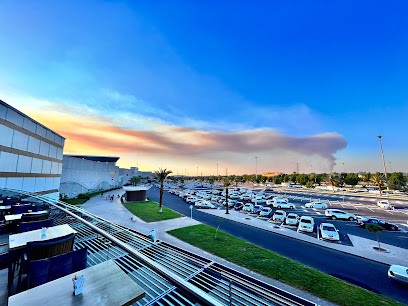
King Abdulaziz Park
Discover the beauty and tranquility of King Abdulaziz Park in Tabuk, an urban oasis perfect for relaxation, recreation, and family fun.
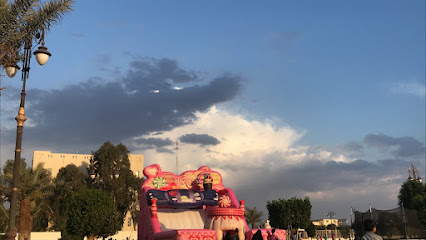
Tubuk Fortress
Uncover the historical splendor of Tubuk Fortress, a captivating archaeological site in Tabuk, Saudi Arabia, where ancient history comes alive.
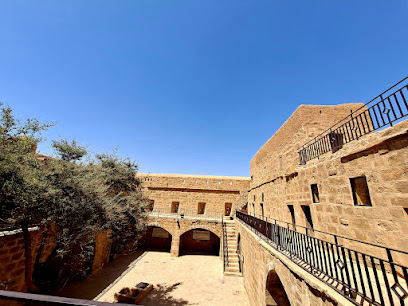
Al Rajhi Park
Experience the beauty of nature at Al Rajhi Park in Tabuk, a serene garden offering relaxation, family fun, and picturesque landscapes.
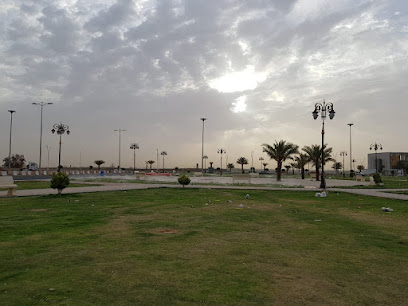
Waterfall Park
Discover the serene beauty of Waterfall Park in Tabuk, where lush gardens and a cascading waterfall create a perfect escape for nature lovers and families.
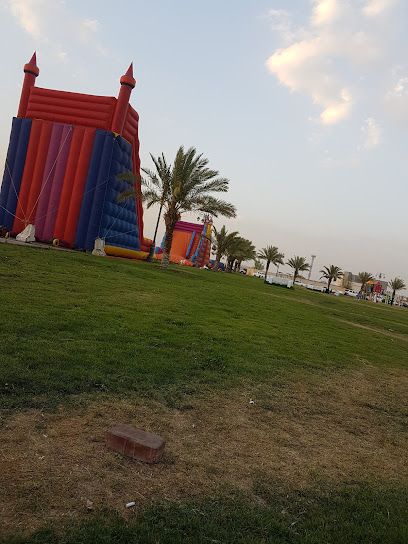
Tabuk Walk
Discover the beauty of nature at Tabuk Walk, a premier hiking area in Tabuk offering picturesque trails and stunning landscapes for all adventurers.
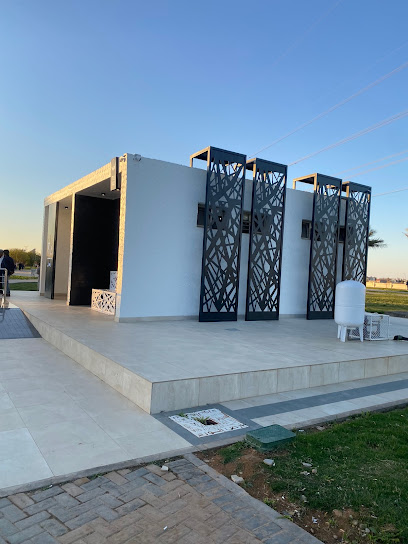
Al-Amuaj Park (Female Only)
Discover Al-Amuaj Park in Tabuk, a serene female-only park perfect for relaxation, picnics, and enjoying nature amidst lush greenery.
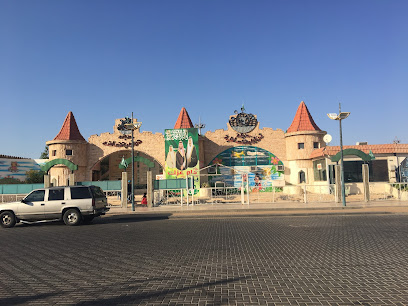
Tabuk Attraction Mud House
Explore the Mud House Museum in Tabuk for a unique journey through Saudi Arabia's rich heritage and traditional architecture.
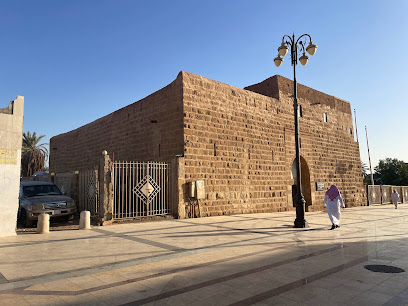
Green Land
Explore the wonders of wildlife at Green Land Zoo in Tabuk, a family-friendly destination filled with diverse animal exhibits and lush landscapes.
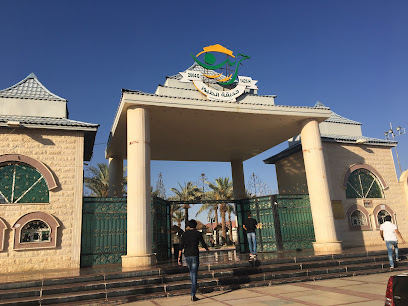
Tabuk Station - Hijaz Railway Station
Explore the historic Tabuk Station - a remarkable rail museum that unveils the fascinating history of the Hijaz Railway in Saudi Arabia.
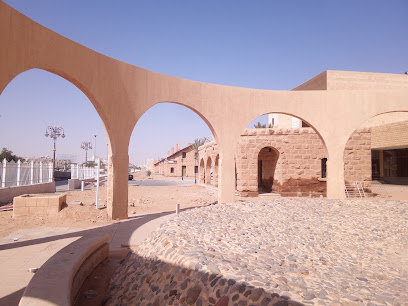
متحف قلعة تبوك الاثرية
Explore the Tabuk Archaeological Museum: A portal to the ancient history and cultural heritage of Saudi Arabia's enchanting Tabuk region.
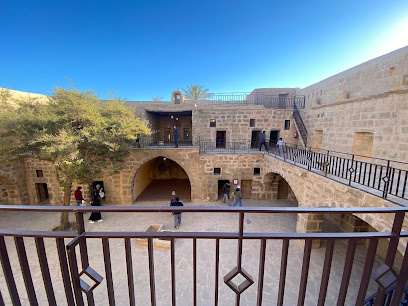
حديقة تبوك المركزية
Explore the lush landscapes and family-friendly atmosphere of Al Nahdah Park, a green oasis in Tabuk perfect for relaxation and outdoor activities.
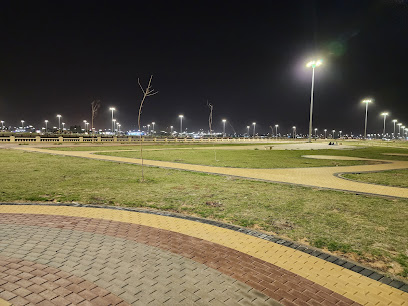
Tabuk Gate Square
Explore the vibrant Tabuk Gate Square, where rich history meets modern charm in the heart of Saudi Arabia's cultural landscape.
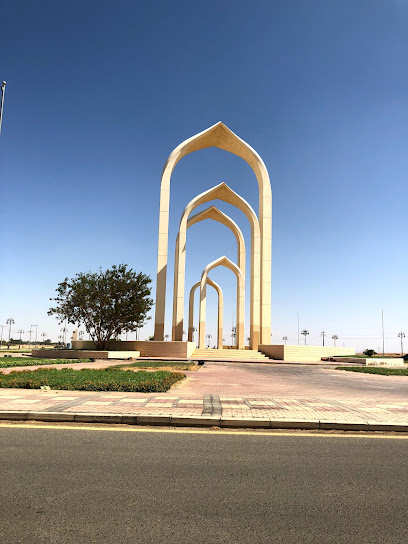
Rays Lake
Discover the enchanting beauty of Rays Lake, a tranquil oasis in Saudi Arabia perfect for relaxation, adventure, and unforgettable experiences.
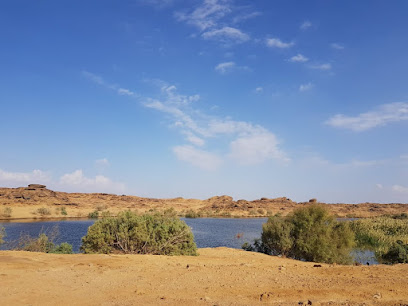
Tabuk Water Tower
Explore the Tabuk Water Tower, a stunning historical landmark showcasing the rich architectural heritage and cultural significance of Tabuk, Saudi Arabia.
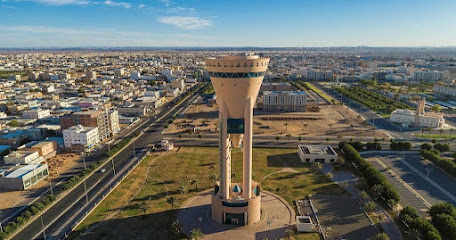
Unmissable attractions to see
Waterfall Park
Experience the tranquility of Waterfall Park in Tabuk, a lush garden oasis featuring stunning waterfalls, vibrant flora, and serene picnic spots for nature enthusiasts.
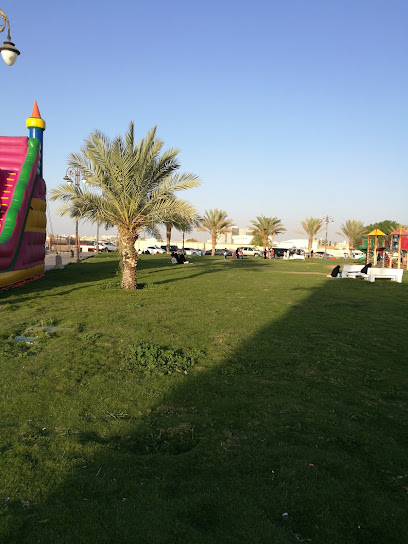
Al-Amuaj Park (Female Only)
Discover Al-Amuaj Park in Tabuk, a beautiful female-only park perfect for relaxation, social gatherings, and enjoying nature's beauty.
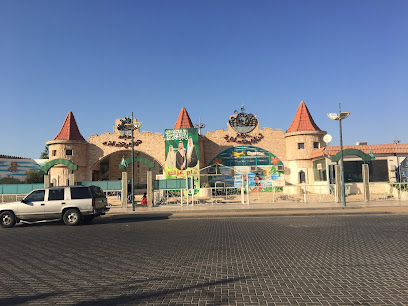
Tabuk Attraction Mud House
Explore the heritage of Tabuk at the Mud House Museum, where history and culture come alive through authentic architecture and artifacts.
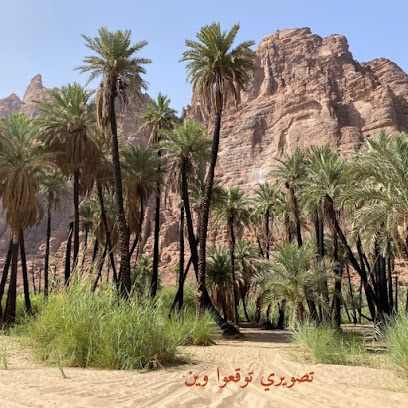
Green Land
Discover the diverse wildlife and serene beauty at Green Land Zoo in Tabuk, a must-visit for animal lovers and families alike.

متحف قلعة تبوك الاثرية
Explore the captivating history and archaeological treasures at Tabuk Archaeological Museum, a cultural gem in Saudi Arabia.
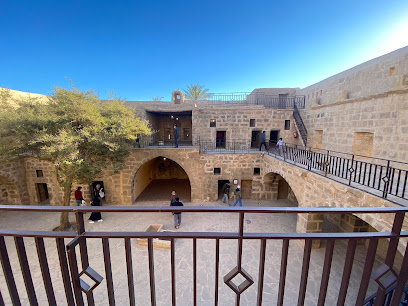
Tabuk Gate Square
Explore Tabuk Gate Square, a cultural gem in Saudi Arabia, where history meets modernity in a vibrant social hub.
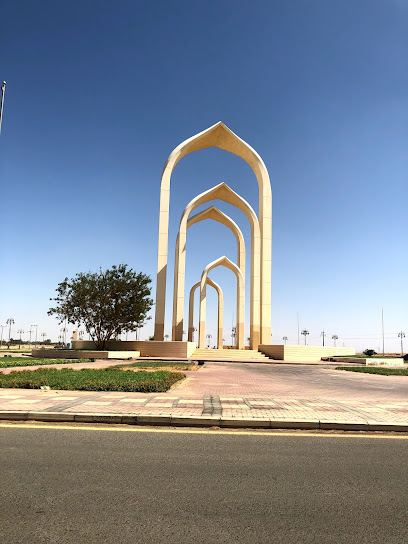
Rays Lake
Experience the tranquility of Rays Lake, a serene tourist attraction perfect for relaxation, outdoor activities, and natural beauty.
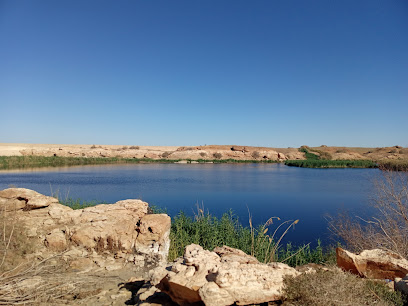
Tabuk Water Tower
Discover the rich history and stunning architecture of the Tabuk Water Tower, a must-visit historical landmark in the heart of Tabuk, Saudi Arabia.
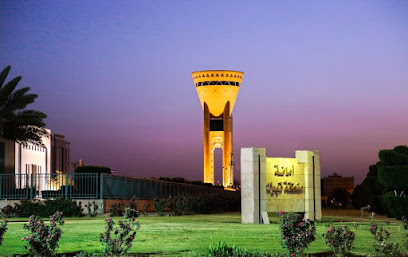
Ottoman Hijazi Railway Remains
Discover the Ottoman Hijazi Railway Remains in Tabuk, a historical museum showcasing the architectural marvels and cultural significance of early 20th-century transport.
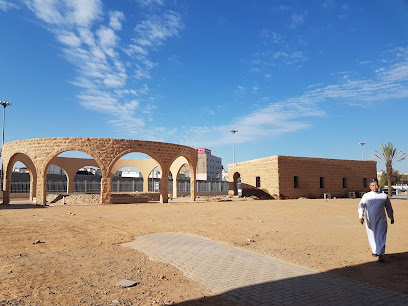
The Palm Roundabout
Discover the beauty of The Palm Roundabout in Tabuk, a stunning tourist attraction adorned with palm trees and vibrant gardens, perfect for relaxation and exploration.
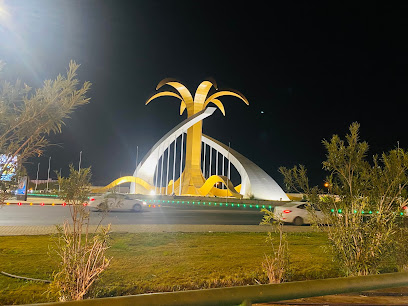
I ️ ️ Tabuk Sign
Discover the Tabuk Sign, a captivating landmark reflecting the cultural heritage of Tabuk; a must-see for every tourist exploring this historic city.
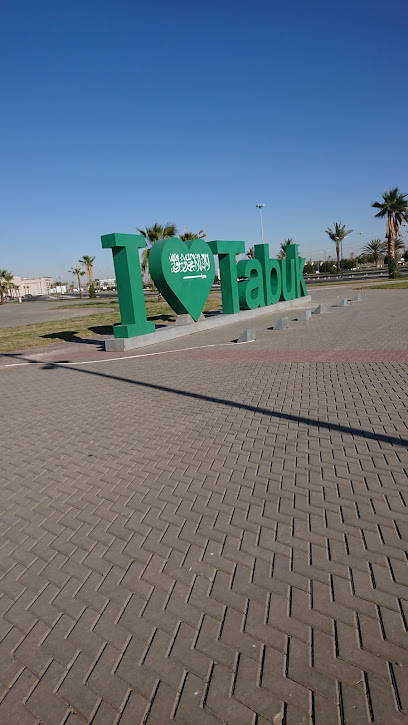
Walkpark ووك بارك
Discover the natural beauty and serene hiking trails of Walkpark in Tabuk, a perfect getaway for nature lovers and adventure seekers.
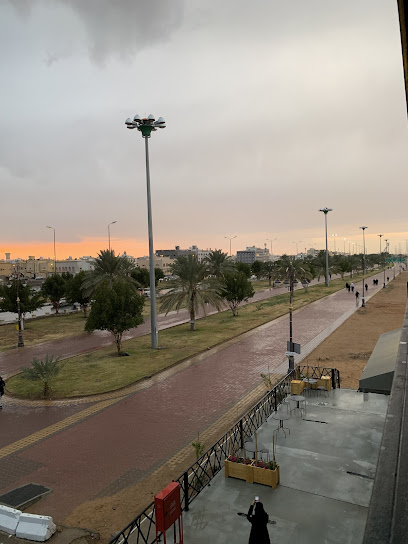
جدارية الملك سلمان وولي العهد
Explore the King Salman Wall in Tabuk: A blend of history, culture, and stunning architecture in Saudi Arabia's picturesque landscape.
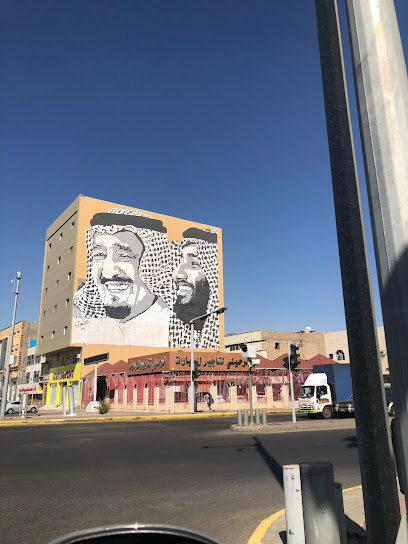
مجسم عام الخط العربي
Discover the rich history of the Arab Line at the Arab Line Museum in Tabuk, where culture and heritage come alive through engaging exhibits.
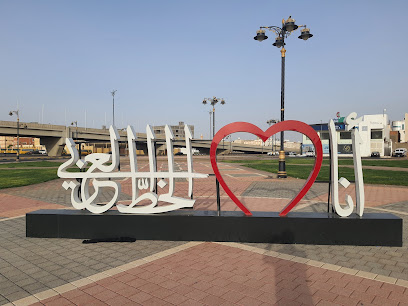
Tabuk Zoo for Kids
Experience the joy of wildlife at Tabuk Zoo for Kids, a fun-filled park perfect for families and animal lovers visiting Tabuk.
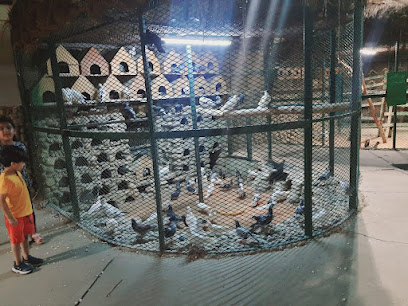
Essential places to dine
Western Road Steak & Grill
Experience the best of American cuisine at Western Road Steak & Grill in Tabuk - where every meal is a celebration of flavor and quality.
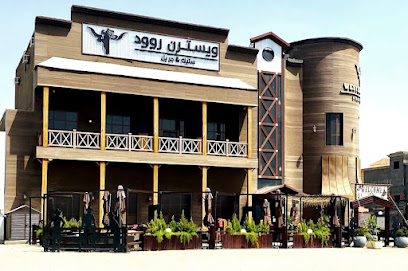
Taj Mahal Restaurant Tabuk
Experience authentic Indian flavors and exquisite dining at Taj Mahal Restaurant in Tabuk - where every meal is a celebration.
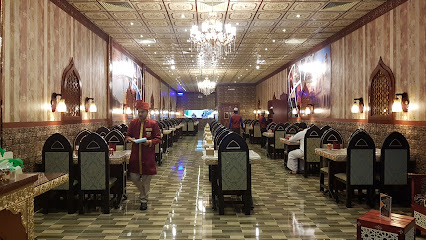
Al-Qaryah Al-Turathiyah Restaurant
Experience authentic Saudi Arabian cuisine at Al-Qaryah Al-Turathiyah Restaurant in Tabuk - a cultural dining gem that delights every palate.
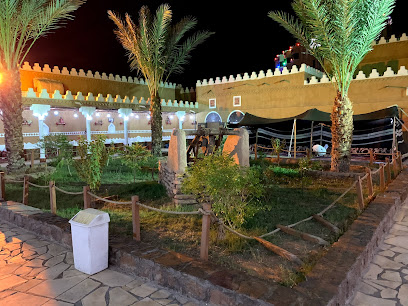
Biryani House
Experience authentic Indian flavors at Biryani House in Tabuk – where every dish tells a story of rich spices and tradition.
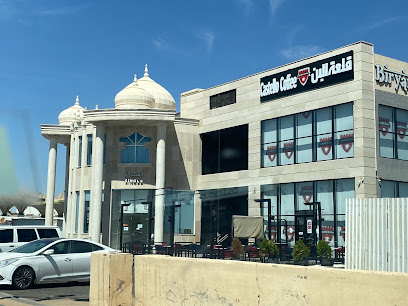
Lavilla restaurant
Experience Lavilla Restaurant in Tabuk - where local flavors meet modern dining in an inviting atmosphere.
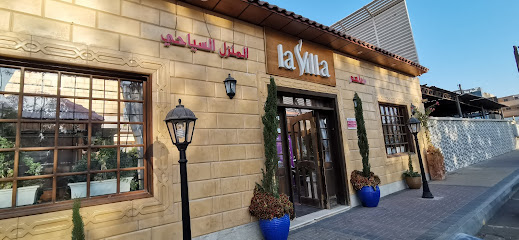
Al-Bustan Restaurants
Discover the flavors of Saudi Arabia at Al-Bustan Restaurants in Tabuk – where traditional meets modern in a delightful dining experience.
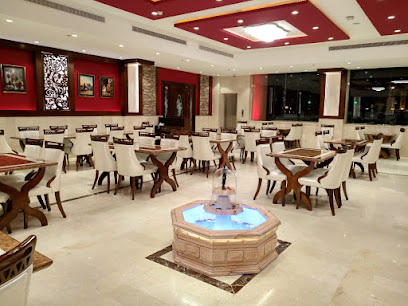
Atoll
Experience culinary excellence at Atoll in Tabuk – where fusion cuisine meets local flavors in a vibrant setting.
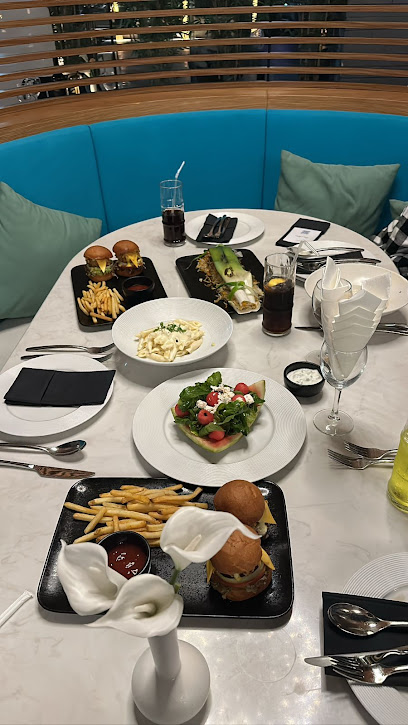
مطعم شاي ورد
Experience the rich flavors of Saudi cuisine at مطعم شاي ورد in Tabuk - where tradition meets modern dining.
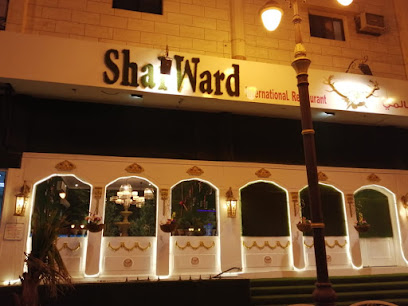
Lobani
Experience authentic Middle Eastern flavors at Lobani in Jeddah – where every dish tells a story.
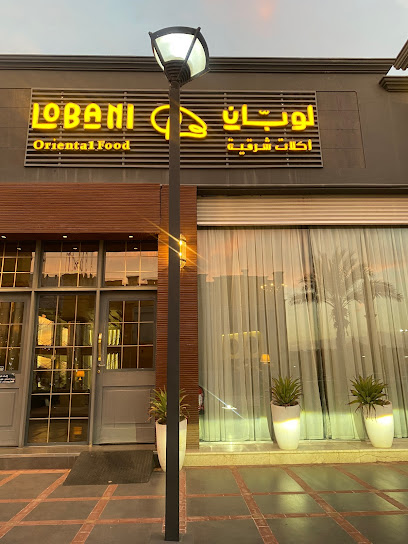
Alkotaishat Restaurant
Discover the rich flavors of Middle Eastern cuisine at Alkotaishat Restaurant in Tabuk – where tradition meets taste!
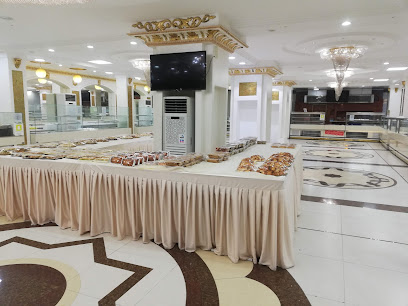
Secret Taste Restaurant
Discover an array of delectable chicken dishes and fast food favorites at Secret Taste Restaurant in Tabuk – where flavor meets comfort.
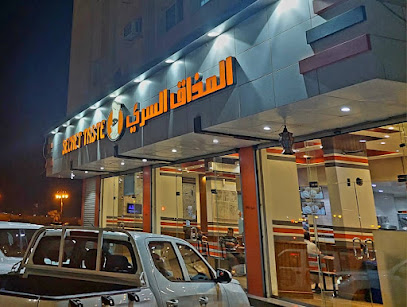
Top Grill Restaurant and Lounge
Experience exquisite barbecue dining at Top Grill Restaurant and Lounge in Tabuk – where flavor meets elegance.
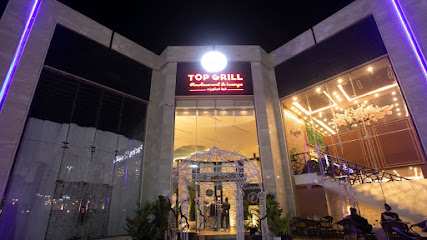
Awaar
Discover Awaar in Tabuk – a culinary delight offering exquisite Middle Eastern flavors in a sophisticated setting.
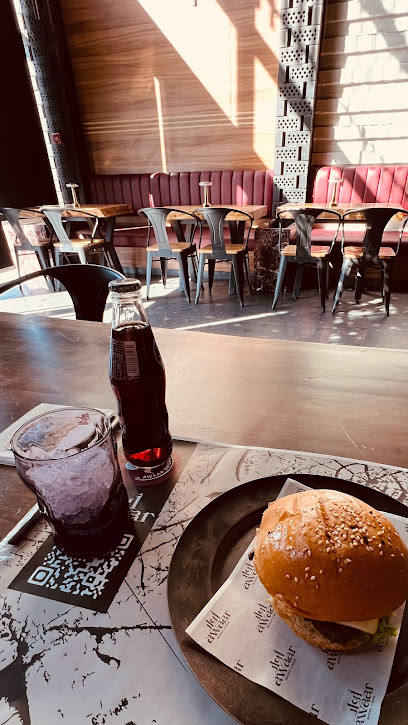
Al Hazara India Restaurant
Discover authentic Indian cuisine at Al Hazara Restaurant in Tabuk - where every dish tells a story.
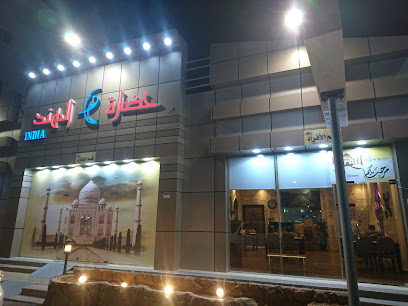
Pakistan restaurant
Experience authentic Pakistani cuisine in Tabuk with flavorful dishes and a welcoming atmosphere that delights every palate.
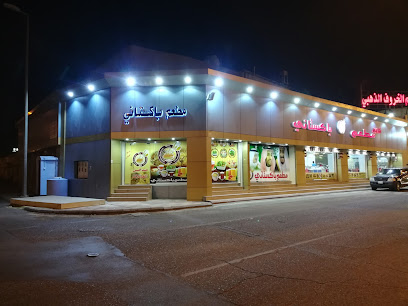
Markets, malls and hidden boutiques
Tabuk Park
Explore Tabuk Park, the ultimate shopping mall in Tabuk, offering a vibrant mix of shops, restaurants, and entertainment for every traveler.
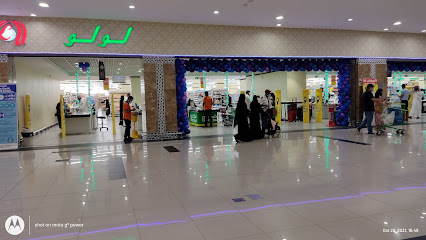
Tabuk Park | تبوك بارك
Discover Tabuk Park, the ultimate shopping mall in Tabuk, filled with diverse shops, delicious dining, and a vibrant atmosphere for everyone.
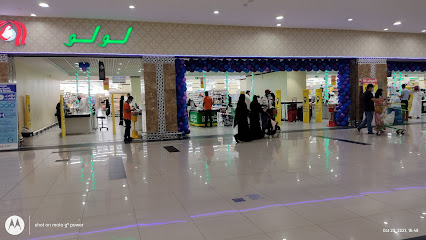
LuLu Hypermarket - Tabuk Park Mall
Explore LuLu Hypermarket at Tabuk Park Mall for a diverse shopping experience, featuring groceries, fashion, and unique local products in one vibrant location.
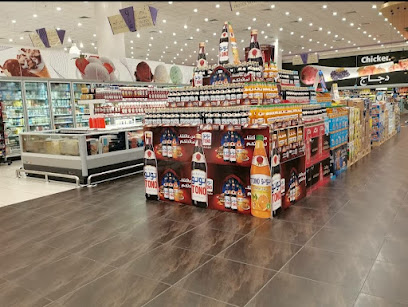
Saving World
Explore the vibrant Saving World shopping mall in Tabuk for an unforgettable retail experience, showcasing local culture and diverse products.
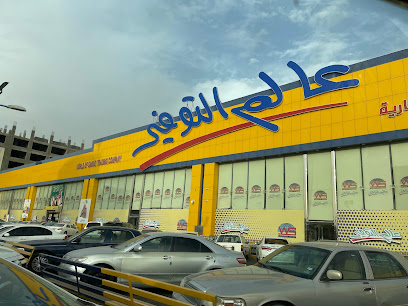
Alhokair Mall
Explore Alhokair Mall in Tabuk for a complete shopping experience with diverse brands, dining options, and family entertainment.
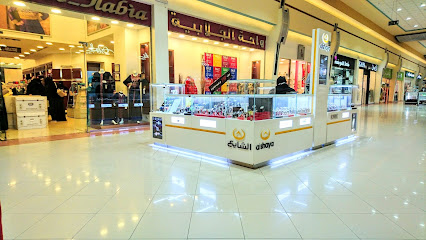
المرواني للعطارة فرع سوق تبوك المركزي
Explore the vibrant world of herbs at المرواني للعطارة, Tabuk's premier herb shop offering an array of spices and natural remedies.
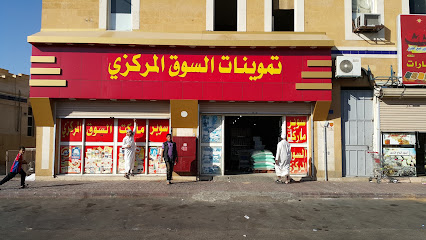
Grand Mall
Explore Grand Mall in Tabuk for a diverse shopping experience with local culture, dining, and entertainment, perfect for all visitors.
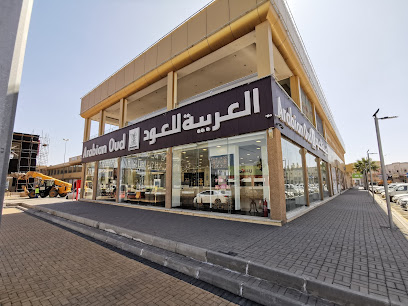
Othaim Markets
Explore the vibrant Othaim Markets in Tabuk, where local flavors meet international products for an unforgettable shopping experience.
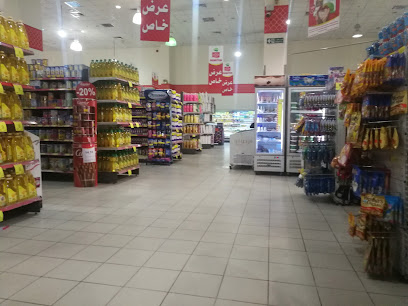
Tabuk Attraction Mud House
Explore the rich heritage of Tabuk at the Mud House, a unique museum showcasing traditional craftsmanship and cultural history.
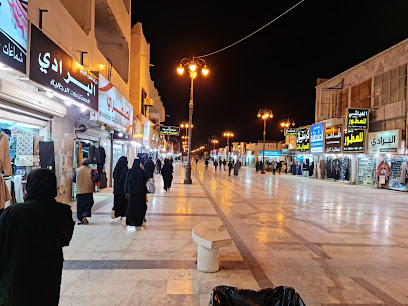
علوش للطيور
Explore Alooosh for Birds in Tabuk: Your ultimate destination for avian companions and pet care essentials.
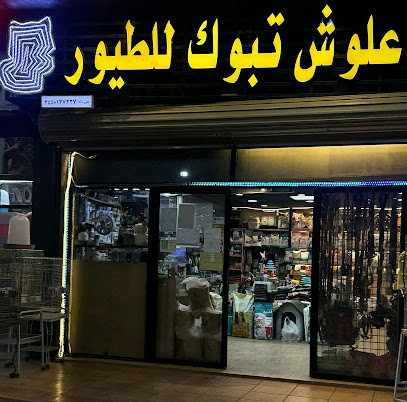
5 Riyal shop
Explore the 5 Riyal Shop in Tabuk for an unforgettable shopping experience filled with amazing deals and local charm.
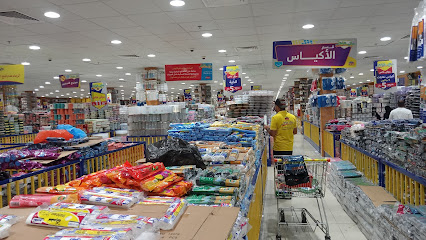
Centrepoint
Experience a shopping paradise at Centrepoint in Tabuk, featuring clothing, beauty products, and baby essentials for all your needs.

4Tech
Explore the dynamic 4Tech Outlet Mall in Tabuk for the latest tech gadgets, appliances, and expert services in a vibrant shopping environment.
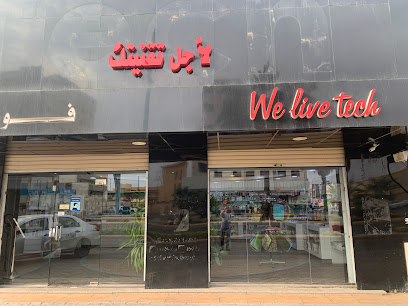
مؤسسةالدرة الخضراء للطيور والاسماك ومستلزماتها
Discover a vibrant oasis for bird and fish lovers at مؤسسة الدرة الخضراء in Tabuk, offering a wide selection of pets and supplies.
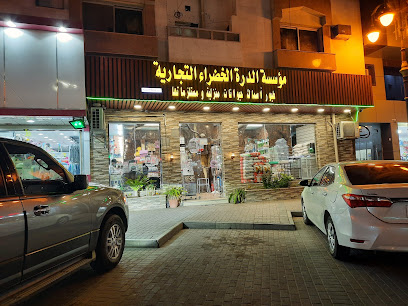
شركة جدة لألعاب الاطفال
Explore Jeddah Children's Games in Tabuk, where every toy sparks joy and ignites imagination for young minds.
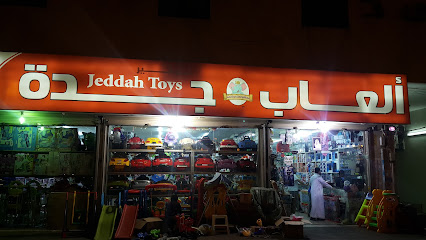
Essential bars & hidden hideouts
Western Road Steak & Grill
Discover the rich flavors of American cuisine at Western Road Steak & Grill, a top dining destination in Tabuk, featuring premium steaks and an elegant atmosphere.
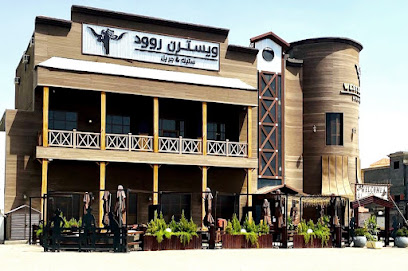
Canephora
Experience the cozy charm of Canephora, a unique cafe and lounge in Tabuk, perfect for coffee lovers and relaxation seekers.
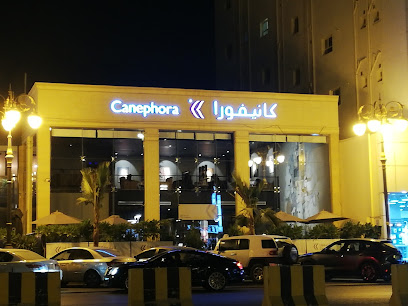
Top Grill Restaurant and Lounge
Experience the best of fine dining and barbecue at Top Grill Restaurant and Lounge in Tabuk, where exquisite flavors meet elegant ambiance.
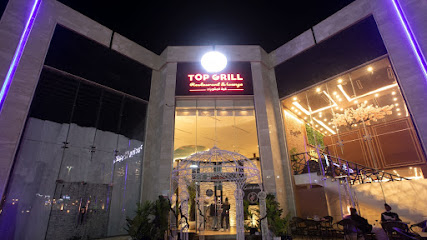
فارس ستيك هاوس - Fares' Steakhouse
Savor the finest steaks and a lively atmosphere at Fares' Steakhouse, Tabuk's premier dining destination for meat lovers.
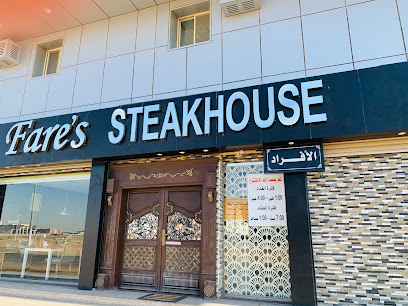
Plan B caféً بلان بي كافيه ️ ️
Discover the rich flavors and inviting atmosphere at Plan B Café in Tabuk, where coffee lovers unite for an unforgettable experience.
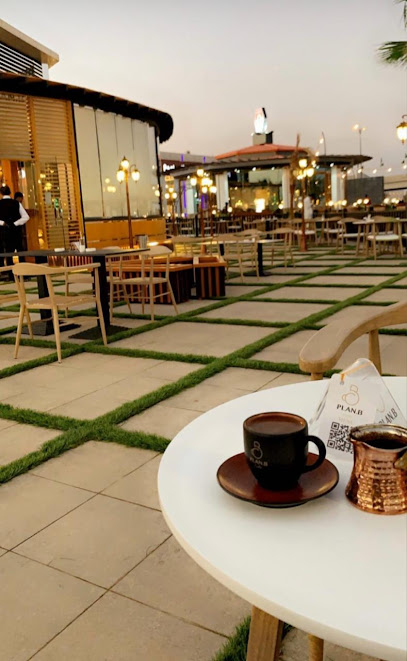
Hikari sushi restaurant ،هيكاري سوشي
Experience the essence of Japanese cuisine at Hikari Sushi Restaurant in Tabuk, where fresh flavors and artistry meet to create unforgettable sushi.
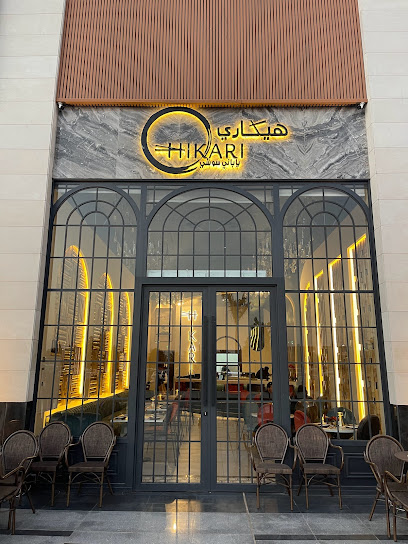
The Fit Bar tabuk | ذا فت بار تبوك
Discover The Fit Bar in Tabuk, a vibrant health food restaurant offering delicious, nutritious meals that cater to all dietary preferences.
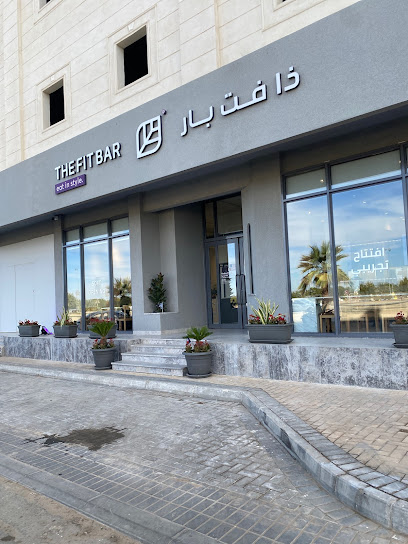
برجر زين
Discover the vibrant cocktail scene at برجر زين in Tabuk, where innovative drinks meet a warm atmosphere for a memorable night out.
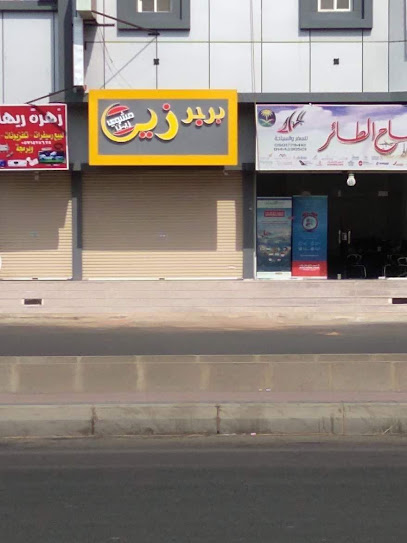
Barn's | بارنز
Discover the rich flavors and inviting atmosphere of Barn's Coffee Shop in Tabuk, where every sip tells a story of quality and passion.
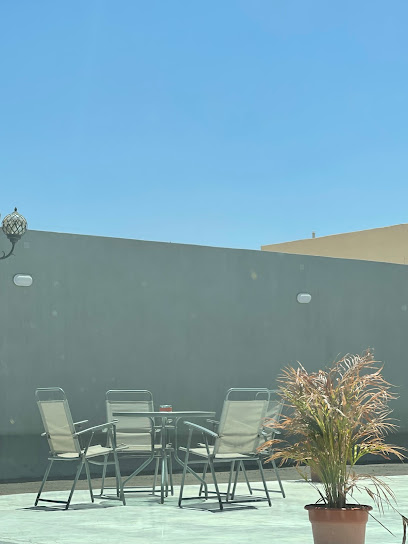
Tabuk used car sale
Experience the essence of Tabuk at the Hookah Bar, a social retreat filled with flavor and connection in a vibrant atmosphere.
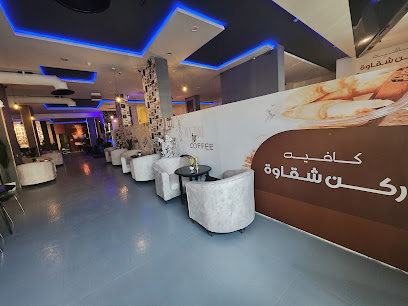
مطعم نبع احتفال | Tabuk Sizzling
Experience the vibrant culinary scene at Tabuk Sizzling Restaurant, where traditional flavors meet modern dining in a lively atmosphere.
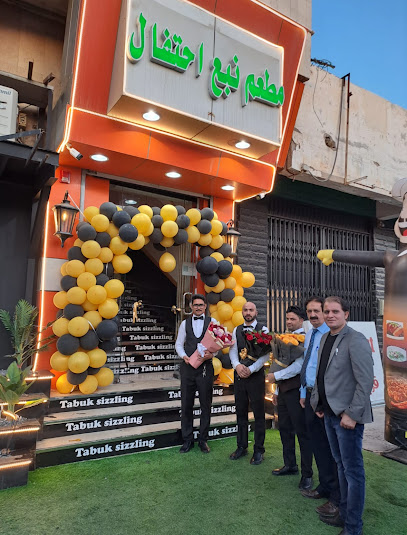
بلاك كود لاونج | الرمز الأسود | Black Code Lounge
Immerse yourself in the vibrant atmosphere of Black Code Lounge, where exquisite beverages and unforgettable hookah experiences await in Tabuk.
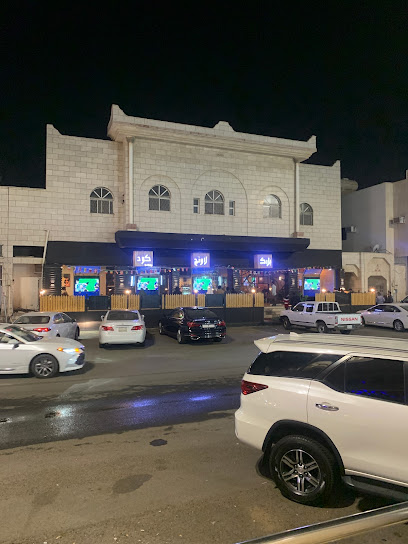
الوسام للمناسبات
Discover the vibrant nightlife at الوسام للمناسبات, a popular bar in Tabuk, offering refreshing drinks in a lively atmosphere perfect for socializing.
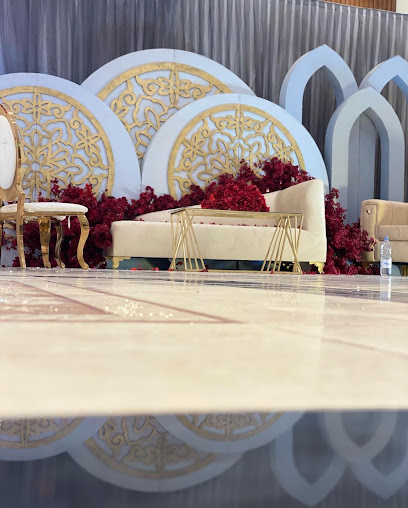
شاليهات سيربرايز
Discover the vibrant nightlife at شاليهات سيربرايز, a premier bar in Tabuk, offering a delightful selection of drinks in a lively atmosphere.
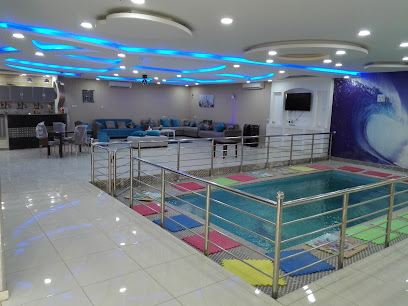
Local Phrases
-
- Helloمرحبا
[Marhaba] - Goodbyeوداعا
[Wada'an] - Yesنعم
[Na'am] - Noلا
[La] - Please/You're welcomeمن فضلك
[Min fadlik] - Thank youشكرا
[Shukran] - Excuse me/Sorryعذرا
[A'ithran] - How are you?كيف حالك؟
[Kayfa halik?] - Fine. And you?بخير. وأنت؟
[Bikhayr. Wa anta?] - Do you speak English?هل تتحدث الإنجليزية؟
[Hal tatahadath al'Inglizia?] - I don't understandلا أفهم
[La afham]
- Helloمرحبا
-
- I'd like to see the menu, pleaseأريد أن أرى القائمة، من فضلك
[Aridu an ara alqaimah, min fadlik] - I don't eat meatأنا لا آكل اللحم
[Ana la aakul allahm] - Cheers!في صحتك!
[Fi sahtak!] - I would like to pay, pleaseأريد أن أدفع، من فضلك
[Aridu an adfa', min fadlik]
- I'd like to see the menu, pleaseأريد أن أرى القائمة، من فضلك
-
- Help!النجدة!
[Alnajdah!] - Go away!إبتعد!
[Ibta'id!] - Call the Police!إتصل بالشرطة!
[Itsal bialshurta!] - Call a doctor!إتصل بطبيب!
[Itsal batabib!] - I'm lostلقد ضللت
[Liqad dalalt] - I'm illأنا مريض
[Ana mareed]
- Help!النجدة!
-
- I'd like to buy...أود أن أشتري...
[Awdu an ashtari...] - I'm just lookingأنا فقط أتطلع
[Ana faqat atatallu] - How much is it?بكم هذا؟
[Bikam hatha?] - That's too expensiveهذا غالي جدا
[Hatha ghaali jiddan] - Can you lower the price?هل يمكنك تخفيض السعر؟
[Hal yumkinuka takhfid alsar?]
- I'd like to buy...أود أن أشتري...
-
- What time is it?كم الساعة؟
[Kam alsaa'ah?] - It's one o'clockالساعة الواحدة
[Alsaa'ah alwahidah] - Half past (10)النصف بعد العاشرة
[Alnisf ba'd al'ashirah] - Morningالصباح
[Alsubah] - Afternoonالمساء
[Almasa'] - Eveningالمساء
[Almasa'] - Yesterdayأمس
[Ams] - Todayاليوم
[Alyawm] - Tomorrowغدا
[Ghadan] - 1واحد
[Wahid] - 2اثنان
[Ithnan] - 3ثلاثة
[Thalatha] - 4أربعة
[Arba'ah] - 5خمسة
[Khamsah] - 6ستة
[Sittah] - 7سبعة
[Sab'ah] - 8ثمانية
[Thamania] - 9تسعة
[Tis'ah] - 10عشرة
[Asharah]
- What time is it?كم الساعة؟
-
- Where's a/the...?أين...؟
[Ayna...?] - What's the address?ما هو العنوان؟
[Ma huwa al'ainan?] - Can you show me (on the map)?هل يمكنك أن تريني (على الخريطة)؟
[Hal yumkinuka an tarini (ala alkhariata)?] - When's the next (bus)?متى الحافلة القادمة؟
[Mata alhafilah alqadimah?] - A ticket (to ....)تذكرة (إلى...)
[Tadhkirah (ila...)]
- Where's a/the...?أين...؟
History of Tabuk
-
Tabuk's history traces back to ancient times, with archaeological evidence suggesting that the area was inhabited as early as 1500 BCE. The region was strategically located on the ancient trade routes, connecting the Arabian Peninsula with the Levant and Egypt. The early inhabitants were primarily nomadic tribes who played a vital role in trade and cultural exchanges.
-
During the first century BCE, the Nabateans, an Arab people who established a kingdom in Petra (modern-day Jordan), extended their influence into the Tabuk region. They built fortresses and settlements, and their presence is still evident in the ancient ruins scattered across the area. The Nabateans were known for their advanced engineering and water management systems, which helped them thrive in the arid environment.
-
In the second century CE, the Roman Empire expanded into the Arabian Peninsula, and Tabuk became a part of the Roman province of Arabia Petraea. The Romans built fortifications and roads, some of which are still visible today. This period marked a significant phase in Tabuk's history, as it became a crucial link in the trade routes connecting the Roman Empire with the Arabian Peninsula.
-
With the advent of Islam in the 7th century, Tabuk gained prominence as a significant location in early Islamic history. The Battle of Tabuk in 630 CE, led by Prophet Muhammad, was a pivotal event. Although the battle did not result in combat, it demonstrated the growing influence of the Muslim community. The Tabuk region also became an essential waypoint for Muslim pilgrims traveling to Mecca and Medina.
-
In the early 16th century, Tabuk came under Ottoman rule, which lasted for several centuries. The Ottomans established military outposts and infrastructure to secure the pilgrimage routes and maintain control over the region. The Hijaz Railway, constructed in the early 20th century to facilitate the pilgrimage to Mecca, had a significant impact on Tabuk, transforming it into a key logistical hub.
-
In the 20th century, with the discovery of oil and the establishment of modern Saudi Arabia, Tabuk underwent significant transformation. The city saw extensive development in infrastructure, education, and healthcare. Today, Tabuk is a vibrant city that balances its rich historical heritage with modern amenities, making it a unique destination for travelers.
Tabuk Essentials
-
Tabuk is accessible by air through the Tabuk Regional Airport (TUU), which has connections to major cities in Saudi Arabia and some international destinations. The airport is approximately 20 kilometers from the city center. You can also reach Tabuk by road; it is well-connected via highways from cities like Riyadh, Jeddah, and Medina. Bus services operated by companies like SAPTCO provide another travel option.
-
Within Tabuk, you can use taxis, which are widely available and relatively inexpensive. Ride-hailing services like Uber and Careem are also operational in the city. Public buses are available but less frequent. Renting a car is a convenient option if you plan to explore the surrounding areas at your own pace. Ensure you have an international driving permit if you intend to drive.
-
The official currency in Saudi Arabia is the Saudi Riyal (SAR). Credit and debit cards are widely accepted in hotels, restaurants, and shops in Tabuk. ATMs are readily available throughout the city. It is advisable to carry some cash for smaller establishments and markets. Currency exchange services are available at the airport and in major hotels.
-
Tabuk is generally a safe destination for tourists. However, as with any city, it is wise to exercise standard precautions. Avoid walking alone at night in unfamiliar areas and keep an eye on your belongings in crowded places. There are no specific high-crime areas targeting tourists, but vigilance is always recommended.
-
In case of an emergency, dial 911 for immediate assistance. The local police and medical facilities are efficient and accessible. It is recommended to have travel insurance that covers medical emergencies. Pharmacies are available in the city for minor health issues where you can purchase over-the-counter medications.
-
Fashion: Do dress modestly. Men and women should avoid wearing revealing clothing. Women are advised to wear an abaya. Religion: Do respect Islamic customs and traditions. Avoid public displays of affection. Public Transport: Do be respectful and give up your seat to elderly passengers. Don't eat or drink on public transport. Greetings: Do greet people with a handshake, but note that some conservative individuals may prefer not to shake hands with the opposite sex. Eating & Drinking: Do try local delicacies and accept food offerings graciously. Don't eat or drink in public during the fasting hours of Ramadan.
-
To experience Tabuk like a local, visit the traditional markets (souks) where you can buy local goods and handicrafts. Engage with locals, who are often friendly and willing to share stories about the city's history and culture. Don't miss visiting the historical sites such as the Tabuk Castle and the ancient rock art in the region. For a unique experience, explore the nearby Wadi Disah, known for its stunning landscapes and natural beauty.
Trending Landmark in Tabuk
Nearby Cities to Tabuk
-
Things To Do in Wadi Rum
-
Things To Do in Aqaba
-
Things To Do in Dahab
-
Things To Do in Eilat
-
Things To Do in Ma'an
-
Things To Do in Sharm El Sheikh
-
Things To Do in Al Ula
-
Things To Do in Petra
-
Things To Do in Dana
-
Things To Do in Tafilah
-
Things To Do in Hurghada
-
Things To Do in El Gouna
-
Things To Do in Kerak
-
Things To Do in Masada
-
Things To Do in Ein Gedi





